Recommendation points
The final week of April to some extent confirmed the assumptions that Vladimir Putin decided to test the image of the “people’s ruler”. This idea was prompted by the president himself, demonstrating his new image during the “straight line”. As part of the new strategy, the head of state assures that he does not influence the trials of the opposition, and in the meantime, dissidents are already in prison, under trial and investigation. Nobody needs the opposition. Even the deputies are busy only with their own issues – the war with opponents, friendship with pets, mutual guarantee and concealment of income.
Belousov also said that the government intends to increase spending on the social sphere – infrastructure, education and health care. The source of money for such a budget maneuver will be a decrease in financial support for the activities of state-owned companies..
The country’s leadership has not yet taken a single effective decision that would delay the catastrophic decline in Russian economic growth..
In turn, Finance Minister Anton Siluanov informed the press that at this meeting they also discussed such possible measures to increase economic growth, such as the use of funds from pension and other funds to buy out bonds for the implementation of infrastructure projects. Vladimir Putin shared his opinion, saying that the Russian economy is quite strong in order to remain relatively independent of the influence of world processes..
At the same time, during four hours of discussing the economic growth crisis, only one decision was made – to work out the issue of the possibility of reducing the margin of state-owned banks, since it is too high, even in comparison with the crisis-ridden European Union. The state banking sector is the only way to receive an influx of borrowers.
The uncertainty of the future of the domestic economy is observed in almost all of its spheres. Crisis phenomena even cover social funds, the rate of filling of which is drastically slowing down. At least, at least to correct the situation with money for social articles, the government will take drastic measures.
On Monday, April 22, a number of media outlets reported that the Ministry of Labor had begun developing a bill that would criminalize non-payment of insurance premiums. Non-payers of social and health insurance contributions, debtors on contributions to pension funds will now be classified as criminals. This procedure was in force before – until 2010, when the unified social tax was replaced by insurance premiums.
Almost half of the working-age population of Russia prefers not to pay insurance premiums – ignores the need for contributions to social funds.
Deputy Prime Minister Olga Golodets explained the need to introduce tough measures against violators by low payment discipline among the working-age population. According to the Ministry of Labor, only 47 million people out of 87 million able-bodied people make payments..
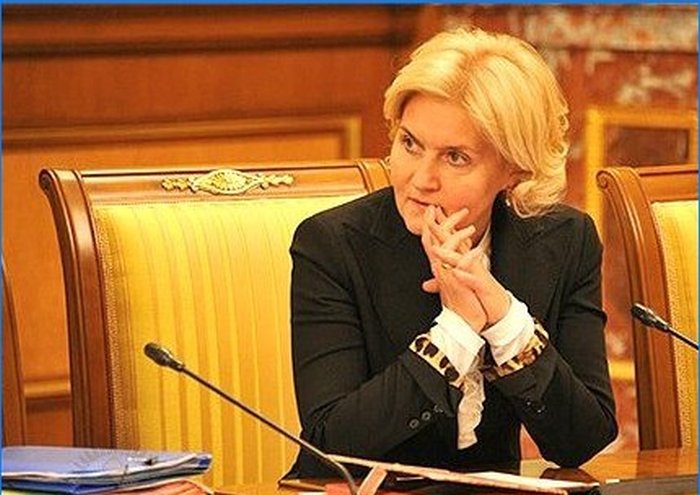
Roman Terekhin, Chairman of the Presidium of the Association of Young Entrepreneurs, spoke about the government initiative, who noted that the decrease in insurance revenues was primarily due to the regulatory increase in the amount of contributions, which caused an outflow of 300 thousand entrepreneurs from business.
Terekhin emphasizes that it would be economically more expedient to fine non-payers of contributions, since criminal prosecution can cause a loss of popularity of entrepreneurial activity and an even greater deficit in funds.
The State Duma has worked
It is too early to speak about the effectiveness of the measures proposed by the President and the Government aimed at improving the economic situation and increasing the level of social security. As they say – time will tell. But the Russians, as it turned out, have long formed their opinion about the productivity and patriotism of parliamentarians..
The experts of the All-Russian Center for the Study of Public Opinion came to disappointing conclusions, who conducted a sociological survey, trying to find out from ordinary Russians the assessment of the State Duma deputies. So, 20% of the polled number believe that parliamentarians are engaged in bribery and embezzlement of public funds. 11% do not trust the people’s representatives. 9% of the main incentives for the work of deputies refer to greed, and 4% called them ordinary talkers.
Average Russians recognize the extraordinary business skills of deputies, but at the same time, it is quite reasonable to note that parliamentarians do not care about their people.
On the other hand, 11% of the respondents spoke respectfully of parliamentarians, 5% consider them to be the defenders of the people’s interests, and 4% even called them people’s leaders. Only 2% of respondents trust the deputies and consider them educated, intelligent people. As for the personal qualities of parliamentarians, Russians include selfishness (60%), indifference towards others (57%), lack of principle (45%), professionalism (42%)..
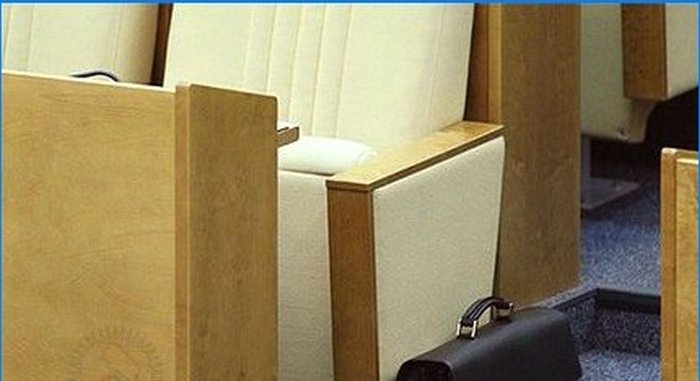
According to Valery Fedorov, general director of the All-Russian Center for the Study of Public Opinion, these results indicate that the citizens of the Russian Federation classify parliamentarians as an educated, wealthy elite, but they believe that the deputies care exclusively about their own well-being, and are absolutely indifferent to the people. Frequent scandals in the State Duma also characterize the people’s deputies not from the best side.
One of such scandals, which became the event of the Duma week, is the second round of the war between the deputy Vladimir Burmatov and the Minister of Education Dmitry Livanov. A member of the United Russia faction, Vladimir Burmatov, believes that the leadership of the Moscow Institute of Steel and Alloys spent 1.8 billion rubles in public funds in 2008, when the current Minister of Education Dmitry Livanov was the rector of the university..
Burmatov has already sent a corresponding appeal to Prosecutor General Yuri Chaika. In 2008, MISiS received the status of a research university of national importance, after which the university’s management requested the allocation of 3.4 billion rubles from budget sources for the construction of a campus in Kommunarka near Moscow.
1.8 billion rubles allocated from budgetary sources for the construction of a student campus disappeared in an unknown direction.
It was assumed that educational buildings, libraries and laboratories, as well as residential complexes for students and professors, would be erected. The university received 1.8 billion rubles from the requested amount, but the aforementioned work was never carried out, and the money was allegedly sent to the development of the university.
Burmatov and a number of other deputies also intend to initiate an audit of the university by the Accounts Chamber. The deputy head of the United Russia faction, Mikhail Yemelyanov, and his colleague from the Communist Party of the Russian Federation, Nikolai Kolomeitsev, have already announced their support for the parliamentarian’s proposal. According to Rostislav Turovsky, head of the Agency for Regional Studies, in fact, the question is being initiated because Burmatov represents a pro-presidential team interested in Livanov’s resignation..
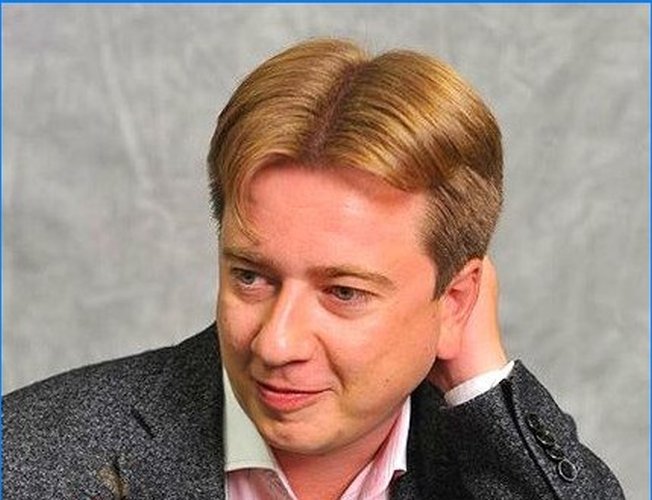
At the same time, the initiative of Vladimir Burmatov is to some extent a retaliatory attack. For example, the Antiplagiat program, previously implemented with the help of Dmitry Livanov, revealed that Burmatov’s candidate dissertation was partially rewritten from other sources, with which the latter categorically disagreed and apparently harbored a grudge.
Another investigation related to the deputies seems to be initially hopeless, since no one wants to deal with it. So, according to Vice-Speaker Vladimir Vasiliev, head of the United Russia faction, on the eve of the declaration of income, not thirty, as reported in the media, were divorced, but only seven deputies.
Vasiliev took these data from the personnel department. Although the deputy refused to name the divorced parliamentarians, information appeared in the press that they were, including, in addition to Vladimir Zhirinovsky, a member of the Liberal Democratic Party of Russia Denis Vochek, leading the direction of the media in the faction, representative of United Russia Vitaly Efimov, communist Alexander Potapov, member of the faction committee on economic policy and his party member Sergei Sobko, head of the industry committee.
Not a single parliamentary commission dared to investigate the cases of the divorce of deputies, who may have hidden their income in this way..
The Ethics Commission will not consider the issue of MPs’ divorces for selfish motives of parliamentarians, including the possible concealment of income. Deputy head of the commission Andrei Andreev forwarded the check to another commission – for the control of income and property.
The head of the latter, Nikolai Kovalev, also said that this issue is beyond the competence of the commission. Kovalev stressed that there is no violation of the law in the divorce of deputies, and the analysis of the ethical side of the problem is beyond the powers of the commission. Thus, the issue of hiding data on the income of the deputies, which they, perhaps, hastily copied to their wives two months before declaring their earnings, will never be disclosed..
Not a single commission, not a single parliamentarian wanted to deal with such a slippery and uncomfortable issue. Because the created precedent can turn against its initiator at any time..
Wars with opposition
Unlike their own wives, with whom the deputies divorce with extraordinary ease, there is a man whom they will never leave. Vladimir Pekhtin will always be the most coveted figure in the Duma. Its value for the State Duma is so high that the participant in the scandal with American real estate is again called to work in parliament..
Speaker Sergei Naryshkin invited Pekhtin, currently on the board of RusHydro, to become an advisor to the Chairman of the State Duma on hydropower issues. The opinion of the United Russia faction that the former deputy is irreplaceable is also confirmed by the words of Deputy Speaker Sergei Neverov, Secretary of the United Russia General Council, who said that any vacated mandate would be immediately transferred to Vladimir Pekhtin.
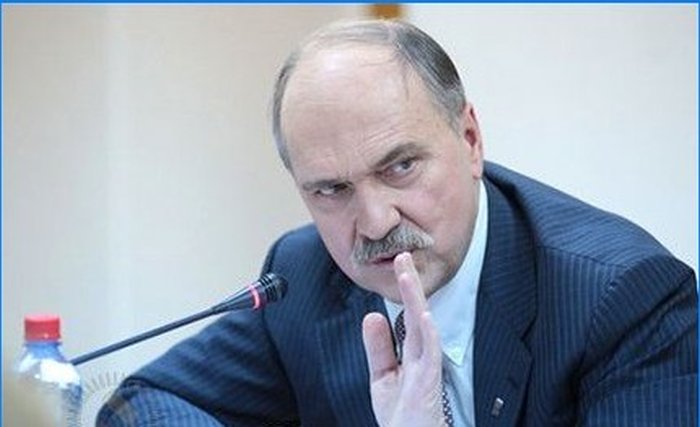
Meanwhile, the love of parliamentarians does not flatter the pride of Pekhtin, who is not going to back down from his intentions to punish the popular blogger Alexei Navalny for the real estate scandal of a former deputy in Miami.
Vladimir Pekhtin will sue Alexei Navalny for disclosing data on the deputy’s luxury apartments in Miami.
During a visit to a meeting of the United Russia faction, Vladimir Pekhtin came with a lawyer Alexander Minakov, who assured United Russia that the ex-parliamentarian had no real estate in the United States. At the same meeting, Pekhtin announced that he would sue Navalny..
We will remind, on March 15, Pekhtin was deprived of his parliamentary powers due to the fact that he decided to withdraw from the State Duma. Navalny accused Vladimir Pekhtin of hiding American real estate worth $ 1.8 million, owned by the deputy, and provided copies of documents as proof. Pekhtin resigned from parliament, ostensibly in order not to undermine the faction’s reputation, but he completely denied Navalny’s accusations.
The oppositionist believes that Pekhtin has already re-registered the property in his son’s name and now the former deputy has a free hand. The former parliamentarian said that in court he would demand compensation in the amount of Alexei Navalny’s annual income. According to Navalny’s declaration, about half of his income is financial assistance from individuals in the amount of 8.5 million rubles, which the blogger, according to him, immediately transferred to the RosPil anti-corruption fund..
The oppositionist, to all appearances, is probably more concerned with a completely different trial. The Kirovsky court continues to consider the Kirovles case, in which the main defendants are Alexei Navalny and entrepreneur Pyotr Ofitserov.
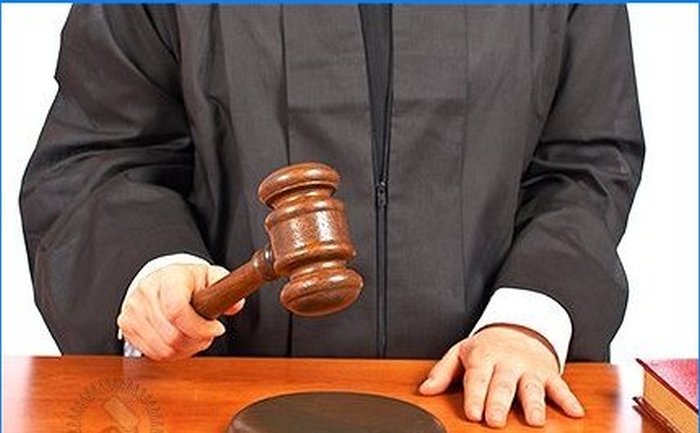
The defendants are charged with the theft of 10 thousand cubic meters of forest in 2009, as a result of which Kirovles was allegedly damaged in the amount of 16 million rubles. On Monday, April 24, a regular court session began, during which Navalny’s defense asked to return the case for further investigation, but the appeal was rejected.
Alexey Navalny believes that the main witness in the Kirovles case is slandering the oppositionist, since he has agreed with the investigation.
The main witness in the case is Vyacheslav Opalev, who previously headed Kirovles. The latter has already been conditionally sentenced to a four-year term. From Navalny’s point of view, Opalev testifies against the blogger in order to obtain forgiveness from law enforcement agencies in other criminal cases brought against the former head of Kirovles.
In addition, the appeal of the defense regarding the possibility of transferring the case to the Moscow Bassmanny Court also did not find support. The Kirov judge made it clear that 37 out of 40 witnesses in the case live in Kirov and the region, so it will be simply more convenient to complete the consideration of the case in Kirov.
The only thing that the servants of Themis allowed Navalny was to relax on the May holidays in the Astrakhan region. Officerov was also allowed to leave until May 5. He will spend time at home, in Kaluga. According to the blogger, the case was initiated solely for political reasons. The oppositionist suggests that the court is a deliberate operation aimed at depriving him of the opportunity to take part in the electoral process.
On April 26, Vladimir Putin voiced the Kremlin’s official position on the “Navalny case”, stating that he personally focused the attention of the Prosecutor General’s Office on the need for its objective consideration.
Now, knowing the fair, neutral attitude of the head of state to the trials of his ideological opponents, it remains to hope that the sentence to another fighter against the authorities – Konstantin Lebedev – sentenced on April 25 to imprisonment for 2.5 years, was dictated exclusively by law. not political motives. Lebedev was convicted by the Moscow City Court for organizing the Moscow riots on Bolotnaya Square in May 2012 and planning new illegal mass actions.
During the investigation, Konstantin Lebedev betrayed all his associates, as well as the conspiratorial connections and plans of the opposition.
The verdict, which was recognized as rather lenient, contains information that Lebedev agreed to a pre-trial agreement, giving law enforcement officers all the information they were interested in. Thus, Konstantin Lebedev told the investigation the names of all his accomplices, told about the methods of conspiracy. Lebedev’s leader, Sergei Udaltsov, is currently under house arrest. Another person involved in the case, Leonid Razvozhaev, according to media reports, was in Kiev last year, where, according to the media, he was detained by Russian special services and taken to Moscow, according to the official version, he returned to the capital on his own.
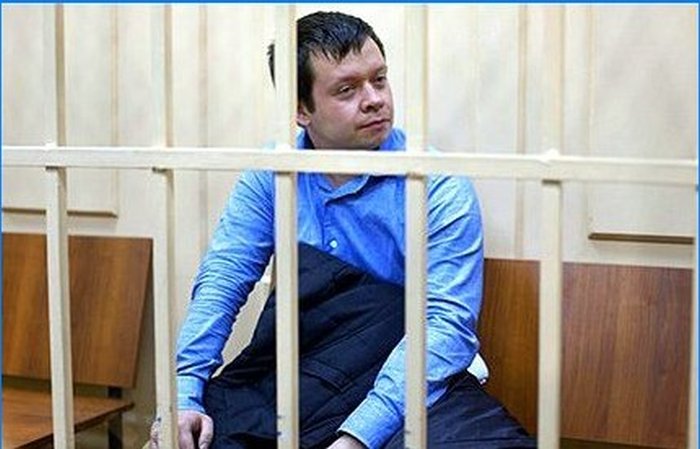
As for Lebedev, he was personally convicted under articles 30 and 212 of the Criminal Code – for the implementation and preparation of mass riots that took place with the use of violence. In addition to the events on Bolotnaya Square, he was accused of setting up training camps in Lithuania, Kazan, Volgograd, Nizhny Novgorod, Yaroslavl and Ivanovo, where preparations for new riots were planned..
The court found that the activities of the accused and his accomplices led to the fact that the state suffered damage in the amount of 28 million rubles. Testimony of Konstantin Lebedev during the court session, which was held behind closed doors, was classified.
Good king
Speaking about objectivity and the absence of repressive mechanisms in relation to the opposition forces, Vladimir Putin took a position that quite harmoniously fits into the new image of the Kremlin leader. This image was most clearly demonstrated by the President during the “direct line”, which took place on Thursday, April 25.
So, on Thursday, Vladimir Putin broke his own record for the length of a “straight line”, which this time was 4 hours and 47 minutes. The record of previous years is the “straight line” of 2011, where the president lasted for 4 hours and 30 minutes. Journalists from abroad tried to analyze Putin’s statements and, as a result, came to the conclusion that the leader is trying to form a certain image among the masses – close to ordinary Russians, but at the same time a strict ruler.

Thus, an attempt to form an image of a fighter against corruption was noticed in The Financial Times (Great Britain) and the Suddeutsche Zeitung (Germany). In the latest edition, the assumptions went even further and claim that Vladimir Putin answered the questions that were prepared in advance. Most likely, his interlocutors were also specially selected..
Foreign media consider Vladimir Putin’s “direct line” a carefully staged show and note that the Russian president is trying on the image of a “good tsar”.
German journalists believe that the entry into the arena of the “direct line” of Putin’s interlocutors – the former Finance Minister Alexei Kudrin, a teacher who criticized the education system, a large family in the Far East and a medical worker with a meager salary – was all a carefully planned move..
The Swiss Le Temps generally characterized the image of the president on the “straight line” as “the father of the nation” who keeps the political situation in the Russian Federation under complete control. Le nouvel Observateur (France) noticed Putin’s attempt to distance himself from the image of a tyrant during his story about the differences between the Stalinist regime and the situation in modern Russia.
The Wall Street Journal (USA) criticized the speech of the head of state not only for the new “friendly” format, but also for the essence of the statements. Thus, the particular indignation of American journalists was caused by the phrase of Vladimir Putin, who in shaping the worldview of the Tsarnaev brothers, who staged the terrorist attack in Boston, accused the United States, but not the North Caucasus region.
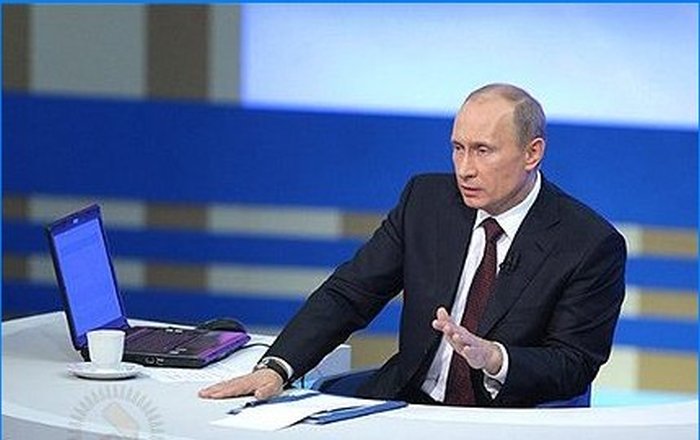
In addition, the publication emphasizes that for the most part, Vladimir Putin adhered to the accusatory line in cases where he could not answer a question without harming his own image. Indeed, the guilty parties in Russian problems were not only irresponsible officials, but also opposition forces, and even other states..
Foreign journalists can make mistakes, interpret subjectively the changes in the public behavior of Vladimir Putin, or simply fulfill the orders of their authorities. And yet, after watching the “straight line” one does not leave a lasting impression – the country’s leadership is changing its strategy, and therefore, Russia will face another political change, and possibly significant. It just looks like a change of masks, the faces under which are still the same.

What specific actions or measures are being taken in the State Duma to address mutual responsibility, and in what ways do these actions align with or contradict the reported repression that is also taking place during this time?
What specific actions have been taken to demonstrate mutual responsibility in the State Duma during the last week of April? Additionally, could you provide some examples of the repression in action that has occurred during this time period?